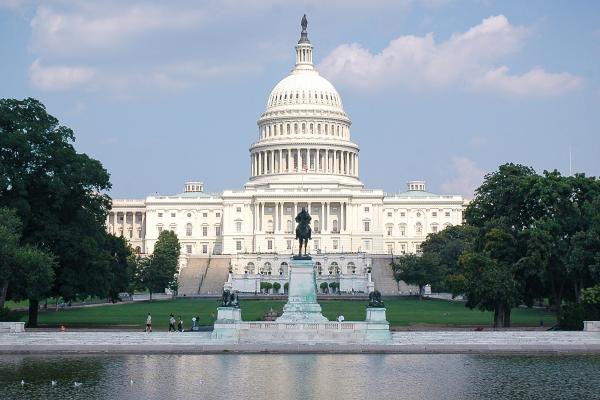Insights on National Security
122 total results. Page 4 of 5.
The subpoena issuance suggests that the Biden Administration will continue the US Government’s assertive approach to China.
Companies should be prepared to conduct additional due diligence for any transactions involving entities in the countries enumerated in this rule.
If passed, these bills will grant US Customs and Border Protection authority for a region-wide WRO enabling the agency to detain all products from XUAR.
Changes are afoot for key industry sectors with complicated global supply chains.

Arent Fox is monitoring policy changes by the Biden Administration to provide timely analysis on how they could impact your business.
On February 4, 2021, the New York Department of Financial Services (DFS) issued Circular Letter No. 2 (2021) to all authorized property and casualty insurers in New York, outlining a “Cyber Risk Framework” that all authorized property and casualty insurers that write cyber insurance should create an
The Information and Communications Technology and Services (ICTS) Rule, if implemented by the Biden Administration, would significantly impact companies that have an international nexus in a number of different sectors.

Arent Fox International Trade Group Partner Marwa Hassoun and Government Contracts Group Counsel Travis Mullaney chat about Section 889 of the National Defense Authorization Act.
Turning to the business of exports from the United States, the next section is a must-read for any company doing business in the United States or from the United States.

On December 18, President Trump signed into law the Holding Foreign Companies Accountable Act, which aims to increase oversight of Chinese companies listed on US stock exchanges and force the delisting of those that refuse to comply with US audit inspection requirements.
Both practical and legal issues will need to be resolved, but as of today, the EEOC has signaled that mandatory COVID vaccinations are lawful for the vast majority of employees.
For the first time, the FCC will have formal rules governing the process for Team Telecom review of license applications involving foreign ownership.

In his last days, President Trump takes a swipe against companies identified by the Department of Defense (DoD) as Communist Chinese military companies by prohibiting US persons from investments.
The US Department of Commerce, Bureau of Industry and Security (BIS) has proposed a new Export Control Classification Number (ECCN), 2D352, to control “software” that is capable of being used to operate nucleic acid assemblers and synthesizers.

The US Department of Commerce, Bureau of Industry and Security (BIS) issued a final rule amending the license review policy for items on the Commerce Control List that are controlled for national security (NS) reasons and are destined to the People’s Republic of China (PRC), Venezuela, or Russia.
The Committee on Foreign Investment in the United States (CFIUS) is now following new rules on mandatory filings for certain foreign investments in critical technology companies.
Target areas are telecom, information security, and sensor items that can be used for censorship, surveillance, detention, and use of force.
On October 1, 2020, the US Department of Treasury’s Office of Foreign Assets Control (OFAC) issued an Advisory highlighting sanctions risks associated with facilitating ransomware payments on behalf of victims targeted by malicious cyber attacks.
BIS will be looking at items that are controlled only for anti-terrorism, crime control, short supply, United Nations embargoes, or designated as EAR99 in establishing new Foundational Technologies Controls.
Last week started and ended with big announcements in the privacy world. At the end of the week, on August 14th, the regulations implementing the California Consumer Privacy Act of 2018 (CCPA) were finally declared final - more than 8 months after CCPA became effective and 45 days after the Attorney
On August 17, 2020, the Department of Commerce, Bureau of Industry and Security (BIS) issued a final rule (the Final Rule) (1) adding additional Huawei non-US affiliates to the Entity List, (2) confirming the expiration of the Temporary General License (TGL).
The new regulations prohibit government agencies from entering into, extending, or renewing a contract with contractors if they use any equipment, system, or service that uses certain Chinese telecommunications equipment or services as a substantial or essential components of any system.
Driven by national security concerns, over the past three years the US Government has taken a much more aggressive position on an array of technology issues involving China.
President Trump signed an Executive Order (EO) (TikTok EO) August 6, 2020, banning “transactions” yet to be identified by the US Department of Commerce (Commerce) related to TikTok and its parent ByteDance Ltd.
As the US technology competition with China continues to intensify, the Trump Administration has taken another step to tighten the screws on China.